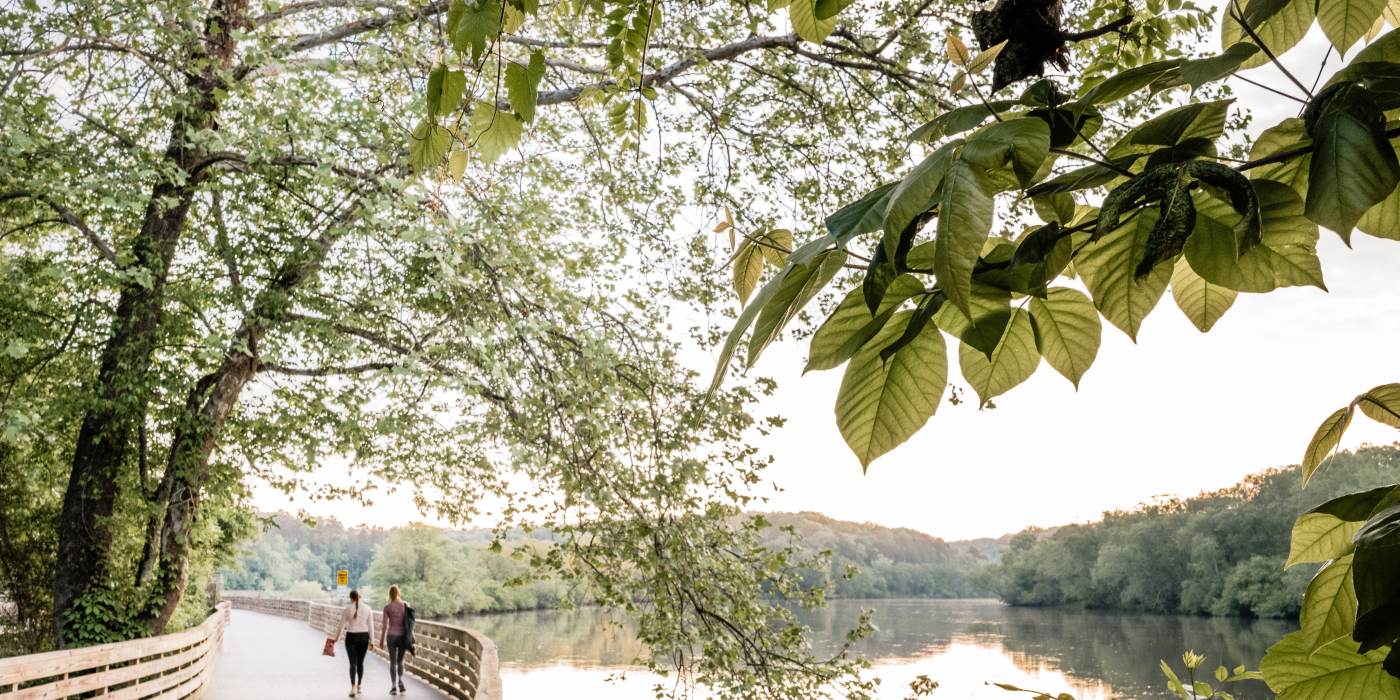Roswell is chock-full of outdoor amenities that appeal to both local residents and visitors from afar. As a result, parts of our trails, public parks and areas of close proximity to the Chattahoochee River see constant foot traffic, which results in a significant amount of wear and tear. Increased visitation to these locations also results in an increase in litter and other unsightly items left behind. Leave No Trace, which operates under seven key principles, is a great reminder to those who frequent our parks to leave it the way you found it.
The 7 Principles of Leave No Trace provide an easily understood framework of minimum impact practices for anyone visiting the outdoors. The Principles can be applied anywhere — from remote wilderness areas, to local parks and even in your backyard. Each Principle covers a specific topic and provides detailed information to empower you to minimize your impacts.
The 7 Principles are well-established and widely known but not static. Leave No Trace continually examines, evaluates, and reshapes the Principles and conducts research to ensure that they are up to date with the latest insights from biologists, land managers, and other leaders in outdoor education.
Principle 1: Plan Ahead and Prepare
Know the regulations and special concerns for the area you’ll visit.
Prepare for extreme weather, hazards, and emergencies.
Schedule your trip to avoid times of high use.
Visit in small groups. Split larger parties into smaller groups.
Repackage food to minimize waste.
Principle 2: Travel & Camp on Durable Surfaces
Durable surfaces include established trails, campsites, rock, gravel, and dry grasses or snow.
In popular areas:
Concentrate use on existing trails.
Walk single file in the middle of the trail, even when wet or muddy.
Focus activity in areas where vegetation is absent.
In undisturbed areas:
Disperse use to prevent the creation of campsites and trails.
Avoid places where impacts are just beginning.
Principle 3: Dispose of Waste Properly
Pack it in, pack it out. Inspect for trash or spilled food. Pack out all trash, leftover food, and litter.
To wash yourself or your dishes, carry water 200 feet away from streams or lakes and use small amounts of biodegradable soap. Scatter strained dishwater.
Principle 4: Leave What You Find
Preserve the past: observe cultural or historic structures and artifacts, but do not touch them.
Leave rocks, plants, and other natural objects as you find them.
Avoid introducing or transporting non-native species.
Do not build structures, furniture, or dig trenches.
Principle 5: Minimize Campfire Impacts (Note: fires are NOT allowed in Roswell parks)
Use a lightweight stove for cooking.
Use established fire rings, pans, or mound fires where fires are permitted.
Keep fires small. Use only sticks from the ground that can be broken by hand.
Burn all wood and coals to ash, put out campfires completely, then scatter cool ashes.
Principle 6: Respect Wildlife
Observe wildlife from a distance. Do not follow or approach them.
Never feed animals.
Control pets at all times, or leave them at home.
Avoid wildlife during sensitive times: mating, nesting, raising young, or winter.
Principle 7: Be Considerate of Others
Respect others and protect the quality of their experience.
Be courteous. Yield to other users on the trail.
Greet riders and ask which side of the trail to move to when encountering pack stock.
Take breaks and rest away from trails and others.
Let nature’s sounds prevail. Avoid loud voices and noises.
To learn more, check out Home - Leave No Trace - Leave No Trace (lnt.org).
